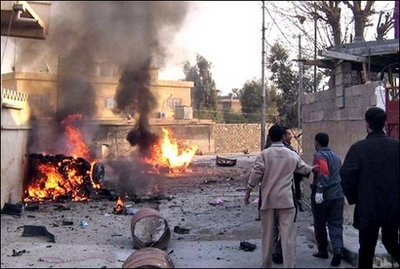151,000 Iraqis killed since invasion: WHO
Updated: 2008-01-10 09:38
GENEVA - About 151,000 Iraqi civilians were killed in the three years following the US-led invasion of their country, according to World Health Organization (WHO) research published on Wednesday.
The new study, which said violent deaths could have ranged from 104,000 to 223,000 between March 2003 and June 2006, is the most comprehensive since the war started.
The study drew on an Iraqi health ministry survey of nearly 10,000 households - five times the number of those interviewed in a disputed 2006 John Hopkins University study that said more than 600,000 Iraqis had died over the period.
While well below that figure, the United Nations agency's estimate exceeds the widely-cited 80,000 to 87,000 death toll by the human rights group Iraq Body Count, which uses media reports and hospital and morgue records to calculate its tally.
"There are a lot of uncertainties in making such estimates," WHO statistician Mohamed Ali, who co-authored the study, told reporters on a conference call.
He said insecurity made parts of Baghdad and Anbar provinces unreachable for those conducting the survey, which included questions about other topics including pregnancy and disease.
Many families also fled their homes as a result of the violence, and some left the country, making it hard to give a precise assessment of the violence in Iraq. As a result, Ali said the margin of error for the toll was relatively high.
Large scale survey
Still, he said the household survey's large scale gave the findings more weight than previous attempts to estimate the number of Iraqis killed in battles between and among military forces, insurgents and sectarian fighters.
The John Hopkins University report, published by the British medical journal Lancet, which was based on a smaller-scale Iraqi survey, drew criticism from the White House and elsewhere for appearing to exaggerate the Iraqi death rate.
|
|
|
||
|
||
|
|
|
|


